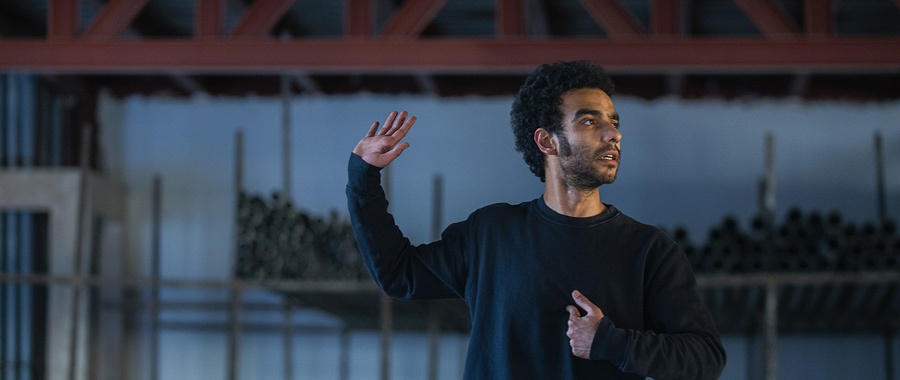The art of acting, often perceived merely as a performance or entertainment form, transcends the boundaries of a theatrical stage. It delves into the essence of human existence, emotions, and, most importantly, the spiritual dimensions of life. For Bahá’ís, acting embodies a profound avenue for spiritual reflection and growth. In this discourse, we explore the multifaceted spiritual lessons imparted through acting, illustrating how this seemingly secular pursuit can engender significant transformations in understanding oneself and the world.
Firstly, one must acknowledge the inherent capacity of acting to challenge entrenched perspectives. The performance of diverse roles compels individuals to step outside themselves, to inhabit new identities, and to walk in the proverbial shoes of others. This experience of empathy aligns harmoniously with Bahá’í principles that emphasize the unity of humanity and the importance of understanding diverse viewpoints. Through the immersive nature of acting, participants engage in a transformative process, transcending their personal narratives to embrace the broader human experience. This shift in perspective is not merely an act but a spiritual exercise—one that cultivates essential virtues such as compassion and understanding.
Moreover, acting serves as a vessel for exploring complex emotions. The human experience is inherently laden with a spectrum of feelings—joy, sorrow, love, and despair. By portraying a character, actors confront these emotions, often illuminating their own feelings in the process. Such introspection can be a conduit for spiritual growth. Within the Bahá’í context, the exploration of emotions can enhance one’s relationship with the Divine, fostering a deeper understanding of both the self and God’s purpose. Engaging with emotions authentically allows individuals to recognize the transient nature of feelings and the greater spiritual realities that underlie them.
A significant lesson derived from the acting process is the importance of authenticity. In a world frequently dominated by pretense and superficiality, the role of an actor demands genuine expression of feelings and thoughts. This authenticity not only enriches a performance but also reflects a core Bahá’í principle—the strive to embody one’s true self. The quest for truth, both in performance and daily life, fosters moral integrity and spiritual clarity. In consistently pursuing authenticity, one may cultivate a life anchored in spirituality, where actions reflect genuine intentions.
The collaborative nature of acting further reinforces key Bahá’í tenets of unity and fellowship. Theatre is rarely a solitary endeavor; it requires the harmonious collaboration of writers, directors, actors, and technical crews. This collective effort mirrors the Bahá’í belief in the necessity of working together to achieve a common goal. The act of creating a performance necessitates relinquishing individual egos in favor of a shared vision, thereby amplifying the impact of a group united in purpose. Such experiences underscore the potential of collaborative endeavors to foster community cohesion, an idea central to Bahá’í teachings.
Moreover, acting can be perceived as a form of personal transformation. The act of embodying various characters offers profound insights into personal strengths and weaknesses. Each performance necessitates a degree of vulnerability, wherein individuals must confront their fears, insecurities, and biases. Such experiences can inspire a metamorphic journey, guiding actors towards personal growth and self-discovery. In the context of spiritual teachings, this journey is emblematic of the soul’s evolution—a pivotal part of the Bahá’í path. By understanding oneself through the lens of varied characters, one may uncover deeper aspects of their identity and relationship with the Divine.
Additionally, the concept of storytelling within acting serves as a bridge to the spiritual realm. Stories have long been acknowledged as powerful vehicles for conveying moral lessons and spiritual truths. The narratives presented on stage can echo the teachings found within sacred texts and serve as contemporary parables that resonate with audiences. The Bahá’í Faith emphasizes the significance of storytelling as a means to impart wisdom, foster understanding, and encourage reflection on one’s spiritual journey. Actors, by telling compelling stories, can facilitate a shared exploration of fundamental truths, inspiring their audience to engage with spiritual principles.
Finally, the practice of acting invites a profound engagement with the concept of service. Acting, at its essence, is an offering—an act of sharing one’s gifts and talents with others. This aligns closely with the Bahá’í principle of selfless service to humanity. Through performances, actors can illuminate issues of social justice, embody the struggle for equality, and provoke thoughtful discourse on critical societal themes. Engaging in this form of service elevates the act of performing to a spiritual calling, where the actor’s journey becomes intertwined with the greater aim of contributing positively to humanity.
In conclusion, the spiritual lessons imparted through acting are manifold, intricately woven into the very fabric of Bahá’í teachings. From fostering empathy and authenticity to emphasizing collective effort and personal transformation, acting emerges as a powerful medium for spiritual exploration. It illuminates the path toward understanding oneself and others, inviting a deeper connection with the Divine and the collective human experience. Through the lens of acting, one may discover not just stories of others but the profound truths of their own spiritual journey, leading to a life of purpose and fulfillment.
